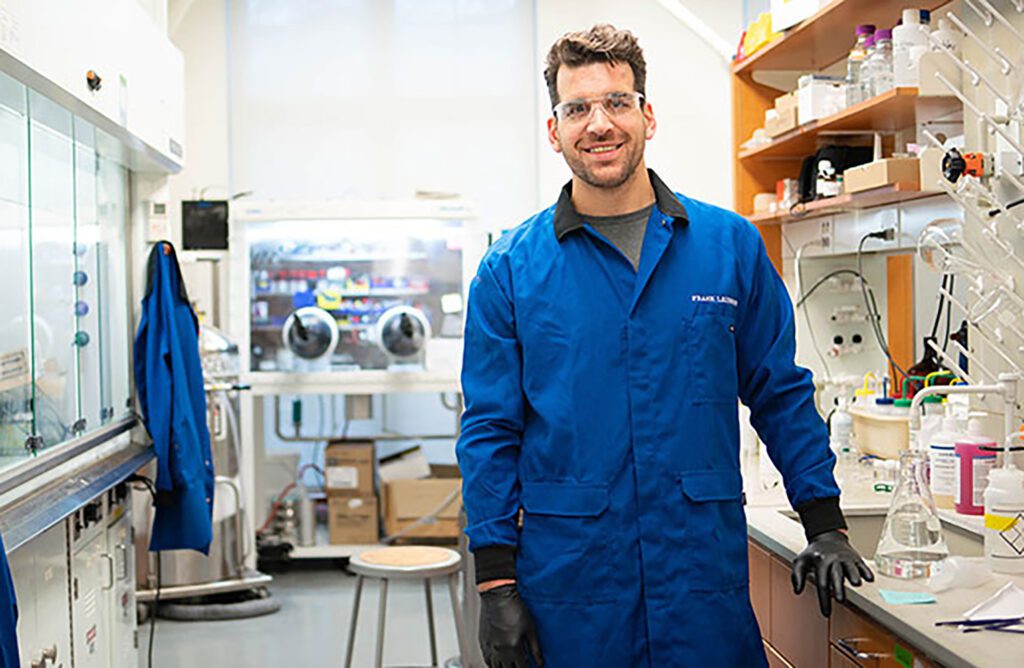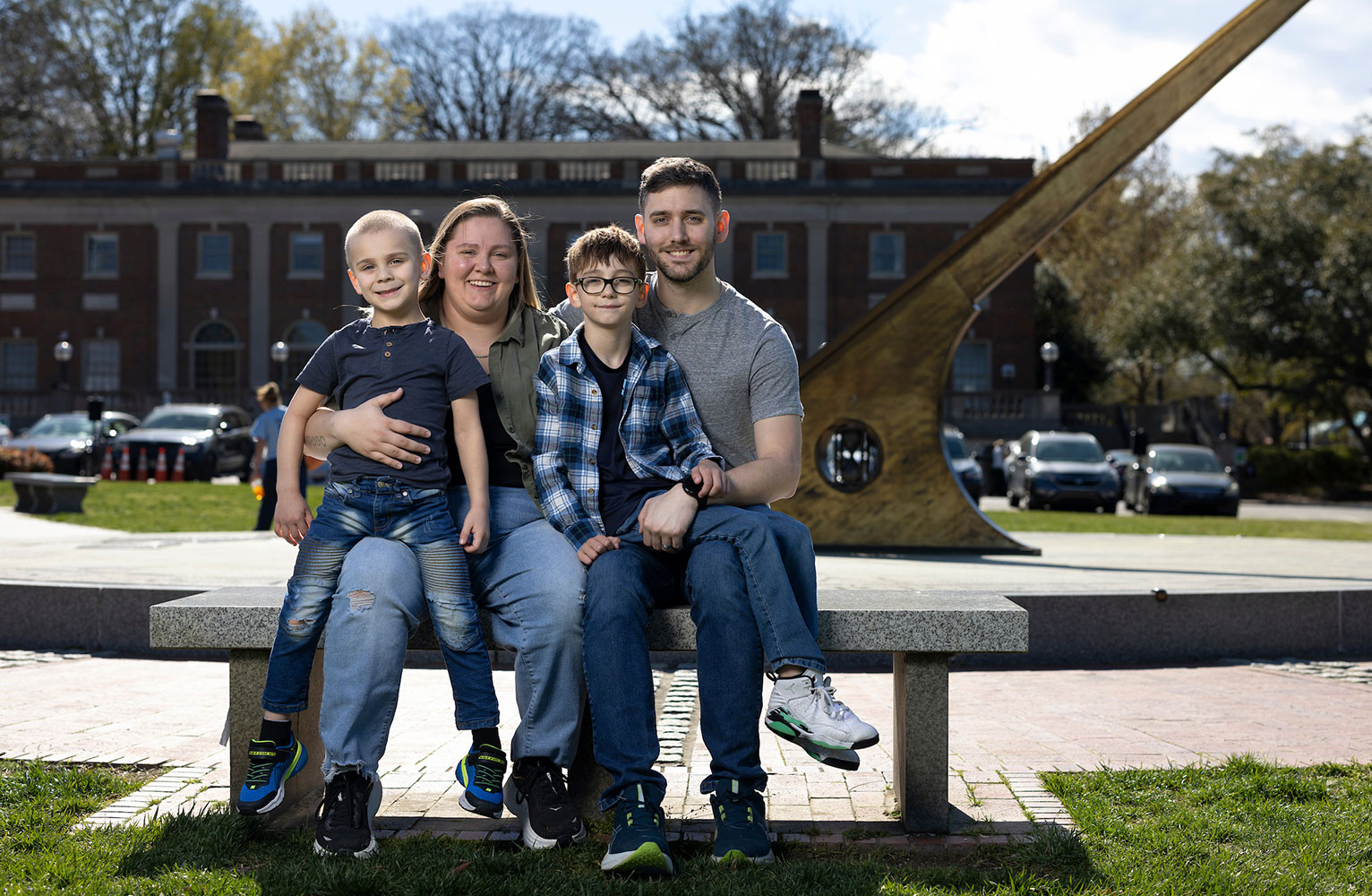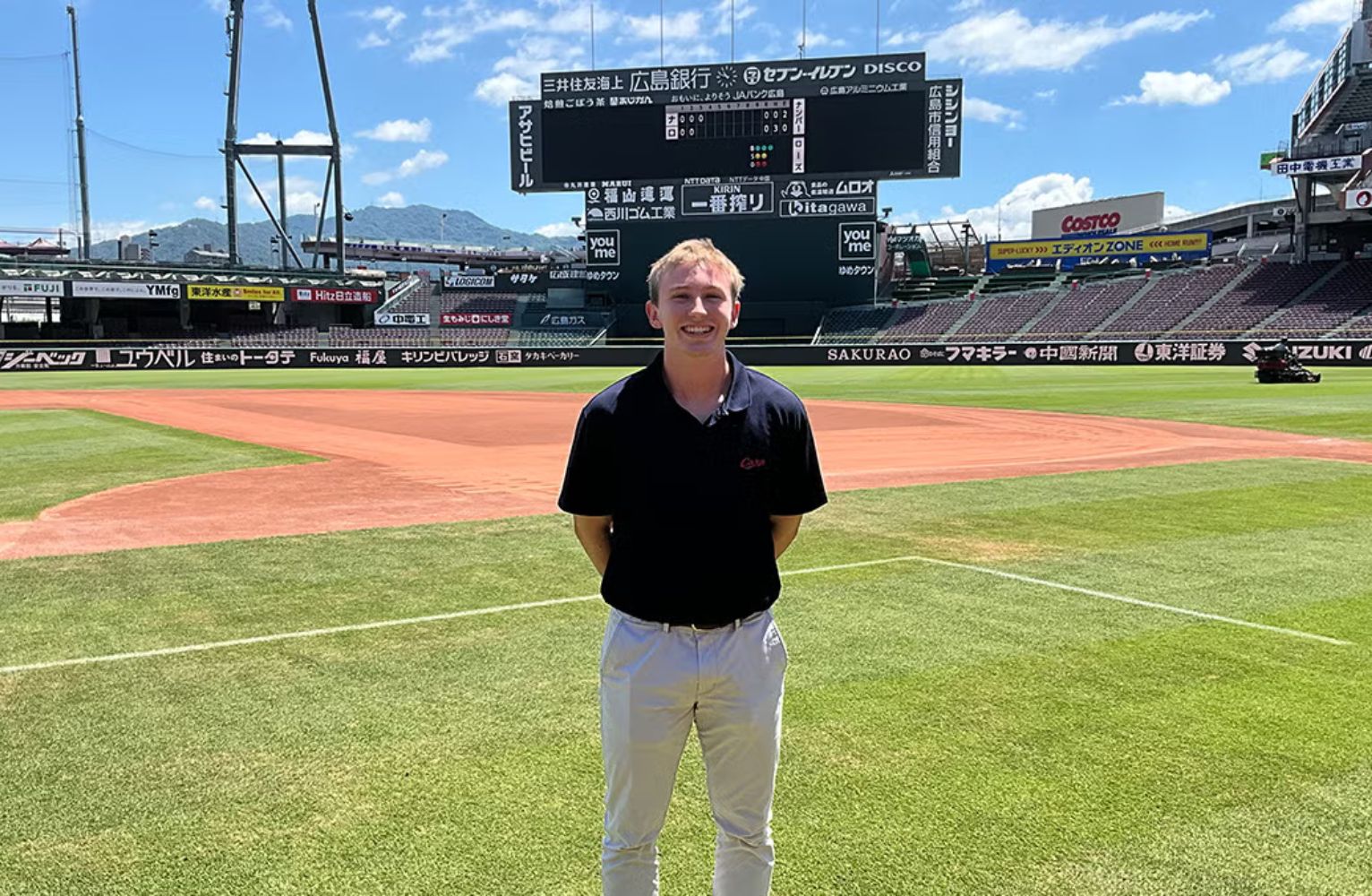
Frank Leibfarth, a member of Carolina’s chemistry department, has been named the inaugural faculty fellow for Carolina’s Institute for Convergent Science (ICS).
Established in 2022, ICS is a pan-campus unit that works to expand the scale and scope of the University’s impact on society by translating discovery into solution through invention, innovation and enterprise. Delivering resources through a “Ready-Set-Go” framework, ICS is built around the concepts of readying researchers to converge on an issue, setting projects for success by developing intellectual property and inventions, and launching the product or technology through appropriate channels.
“Being named as the inaugural ICS faculty fellow is not only a great honor, but also an exciting opportunity to more intimately connect our innovations in the lab with stakeholders outside of the chemistry department,” Leibfarth said. “My goal is for this opportunity to enable myself and members of my group to think through how our science can make an impact beyond our fundamental discoveries, and ultimately contribute to the thriving innovation infrastructure at UNC-Chapel Hill.”
Leibfarth’s research tests molecules to turn plastic waste into useful materials — a potential method of recycling that could upend the industry and prevent recyclable materials from ending up in landfills, incinerators or as environmental pollutants. As part of the five-year fellowship program, which invests in researchers themselves instead of specific projects, Leibfarth can choose from his full scope of research when deciding which issues to tackle in the coming years.
“ICS is designed to gather and focus Carolina’s scientific talent to create new technologies, materials, therapeutics and devices that can be rapidly implemented to improve the lives of North Carolinians and the country as a whole,” said Greg Copenhaver, ICS director. “Frank is a fabulous example of this approach. He has deep, world-class expertise in synthetic chemistry, but also the ability to collaborate productively with partners across the University to create technologies that make a real-world difference, including a way to remove ‘forever chemicals’ from drinking water and novel approaches for turning waste plastic into useful, even high-value, materials.”
Read the Complete Carolina Story
Related Stories




